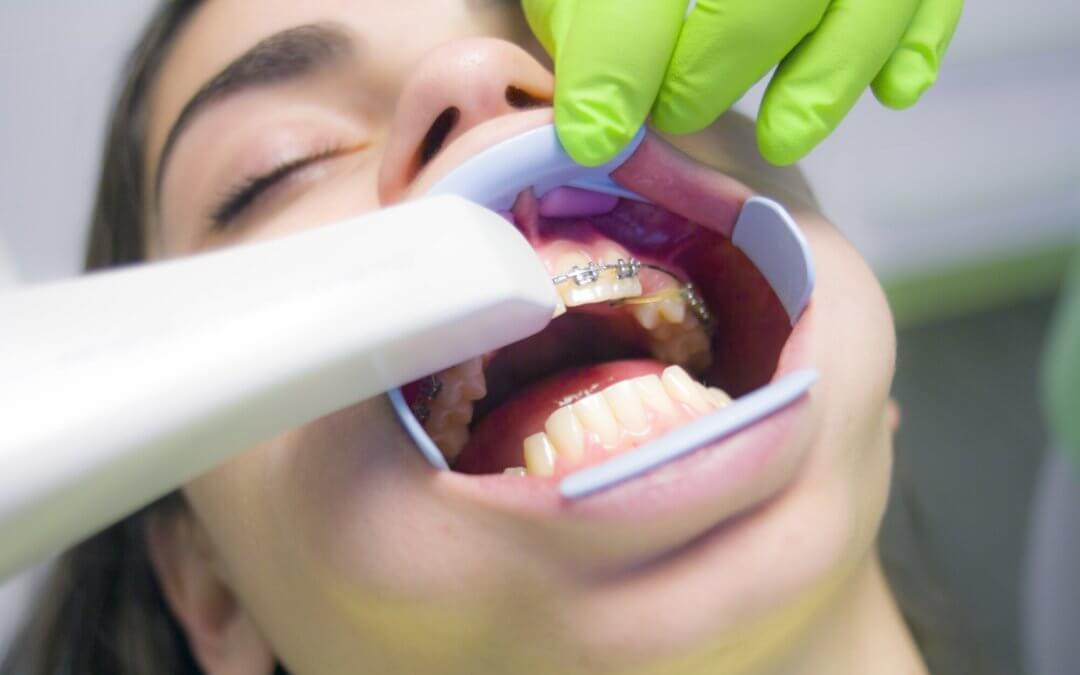Did you know tooth decay is one of the most common chronic diseases of childhood in the United States?
At least 1 in 5 children aged 5 to 11 have at least one untreated decayed tooth.
While the statistics are alarming, the good news is that there is an easy solution. Taking your child to your local pediatric dentist regularly is one of the best ways to detect problems early on and instill a lifetime of good oral care habits.
It also helps your child become familiar with the dental environment and avoid having “dentophobia” – fear of the dentist.
Learn why your child should visit the pediatric dentist here.
1. Everything Is Kid-Friendly
A pediatric dentist clinic is designed to look and feel far less intimidating. Like a pediatric doctor’s office, a kid-friendly dental clinic is the ultimate space for comfort and fun. Most clinics will have toys, games, and televisions in the waiting room and treatment room.
When you form positive associations with going to the dentist, your child is less likely to be afraid when it’s time for their routine checkup. Dental equipment is also less intimidating at the pediatric clinic.
Most dentists use smaller equipment versions to make children feel more comfortable around dental tools. They will also take the time to explain and show your child what the equipment is used for to make your child feel more at ease.
2. Eliminate the Fear of the Dentist
Film and television have posited dentists as the bad guys for far too long. This has created a lifelong phobia of going to the dentist, lasting well into adulthood.
Instead of taking care of their teeth, they let their fears overtake them. As a result, their oral hygiene suffers.
Even if you have a phobia of the dentist, you mustn’t instill this into your child. When you take your child to the pediatric dentist regularly and ensure they have a positive experience, you can stop them from having a fear of the dentist.
Remember, a good dentist is passionate about improving your oral hygiene and isn’t someone to fear.
3. Check for Speech and Bite Problems
Pediatric dentists don’t just check for decay and gum disease. They will also evaluate your child’s bite and how they can form words.
Speech problems are often associated with the teeth and jaw. When your child’s teeth don’t align, there is a higher risk that they will develop speech problems.
At the same time, crooked and twisted teeth change the placement of your child’s tongue and can create a whistle when they speak.
Early detection of speech and bite issues can help prevent them from becoming a problem that lasts well into their childhood.
4. Great for Kids With Special Needs
Finding the right dentist for your child is essential, but perhaps more so when your child has special needs. Many pediatric dentists are experienced in providing dental care for children with special needs.
Children with special needs can have unique issues regarding the health of their teeth and gums. For example, children with Down syndrome tend to have a smaller upper jaw, which can cause crowding of the teeth.
Some of the conditions associated with special needs children also weaken their immune systems. As a result, this can cause tooth decay and gum infections.
An experienced dentist understands how to offer care in a positive environment. Some clinics may also have extended hours to support parents and children with special needs.
5. Provide Educational Support for Parents
Although pediatric dentists are there to improve your child’s oral care, they also educate and support parents. They can offer strategies that parents can use to encourage and maintain good dental health in their children.
In addition, dentists can provide tips to discourage habits such as thumb sucking and pacifier use, as both can affect oral health. A good pediatric dentist will never shame parents who struggle to get their children to comply with oral hygiene.
6. Detecting Problems Early
Visiting your local pediatric dentist allows your dentist to detect any issues with your child’s oral health. The earlier a dentist can treat an issue, the more effective the health outcome.
For example, dental practitioners have an essential role in the early recognition, treatment and future prevention of gingivitis. Left untreated, gingivitis will progress into periodontitis, a more severe stage of gum disease.
7. Forming Good Dental Habits
Children should develop good dental care habits early on. It’s like putting on a seatbelt; adults automatically do it because they were taught as children. The same goes for dental habits.
If there’s one thing that pediatric dentists are passionate about it is helping their tiny patients form good dental habits for life.
Dentists can play a significant role in getting your child to brush and floss regularly. One of the easiest ways to explain the concept of brushing and flossing is with show-and-tell.
Many dentists will use toys to explain healthy habits in a way that kids find fun and interesting.
During your child’s first visit, the dentist can advise you on common dental habits such as baby bottle tooth decay to help you stay on top of your child’s oral health (minus the theatrics!).
Your Local Pediatric Dentist
It’s important to bring your child to your local pediatric dentist as soon as their first tooth comes through.
Not only does it help develop good oral hygiene habits, but it also helps detect problems early and provides educational support for parents.
For the best pediatric dentist for your child, choose Capitol Kids Dentistry. We offer preventative, restorative, and sedation dentistry for kids.
Dr Megan A. Haggerty is one of the best pediatric dentists in Frankfort, KY. Rest assured she will make your child’s visit a positive one.
Are you searching for a pediatric dentist in Frankfort?
Look no further. Contact us today to schedule an appointment.


Recent Comments